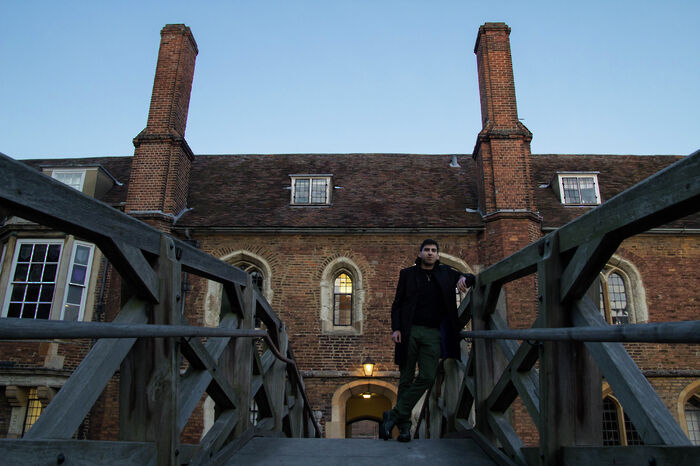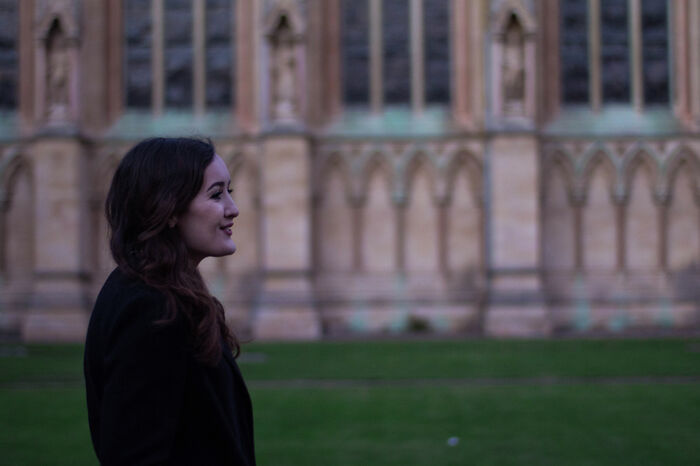University reviews intermissions guidance in wake of investigations
Cambridge has formed a working group looking into the challenges faced by students who take a break from their studies, following a Varsity report

CUSU has released new guidance for students who have to take a break from studies, as the University carries out a review into intermission which was triggered in part by a Varsity investigation.
Intermission, a break from studies also known as ‘disregarding terms’, is usually aimed at helping students overcome medical issues. A report by Varsity in early November last year revealed the extent of the practice, and found disparities in student experience of the intermissions process. It also highlighted concerns about the conditions that colleges place upon students who return from a break in studies – with many being made to take tests in order to return – and continued enforcement of Cambridge’s archaic rule that students who intermit should be banned from the city.
Following the investigation, and a report in The Guardian which focused heavily on rustication, the University of Oxford’s equivalent to intermission, the University of Cambridge’s Welfare & Finance committee launched a survey into current practices, and ruled that guidance for students should be updated.
The committee formed a working group in November to “usefully inform the dissemination of best practice across colleges”, particularly for students who had to take an exam upon their return.
At a meeting of the working group on Tuesday, CUSU/GU Welfare Officer Sophie Buck presented a paper written by CUSU Disabled Students’ Officer Jessica Wing, which laid out the suggestions for improvement proposed by students who have intermitted, in response to a CUSU/GU consultation. The suggestions included:
● A desire for proactive communication on the part of tutors, to regularly check up on students who are intermitting
● An improvement of current guidance, particularly with regards to what the experience of intermission should be like, including the provision of clear written guidance
● Improvements in communication between tutors, directors of study and supervisors with regards to the pressures experienced by students
It includes recommendations for how often tutors should contact intermitting students, and on the advice that should be given to students when they return from a break in studies.
CUSU told Varsity that the working party also discussed the widespread practice of colleges making returning students pass a test in order to re-join after intermission. The University has defended such testing as necessary to determine whether students are ready to return, but Buck criticised them as “effectively discrimination” against disabled students, requiring them “to get into Cambridge twice”.
Of the 20 colleges which responded to the survey, 13 said they set tests for returning students, with seven of those imposing a minimum standard. The standards required varied from 2.i/2.ii borderline to a Third. Four were around the lower 2.ii mark. Only one college said that a student (or students) had actually been prevented from returning on the basis of their test performance.
Jessica Wing told Varsity that the paper had been “well-received” and that the suggested changes “were deemed constructive”.

She said the student unions were “working closely with the University” to update intermission guidance for tutors, which would focus upon making the process consistent across colleges.
“The working group is also intending to make recommendations on the practice surrounding exams as a condition to return from intermission. It's too early to say what these recommendations will look like – but they will stress the importance of fairness”, Wing said.
However, she sounded caution over whether updated guidance would lead to an immediate change in how intermission is handled.
“While the working group is a great step,” she said, “we won’t see progress made until we ensure that tutors know the guidance exists, and implement the recommendations."
The University did not respond to a request for comment.
Tuesday’s meeting coincided with the release of another new guidance document from CUSU, aimed at students who are intermitting or considering doing so. Produced by Wing and released on the Disabled Students’ Campaign website, it offers unofficial guidance into what students should expect during the process of applying for intermission, and outlines key contacts for advice.
READ: CUSU’s new guidance on intermissions
CUSU has produced new guidance for students who have to take a break from studies. Read the full document here, or on the Disabled Students’ Campaign website.
It also offers suggestions for how students could spend their period of intermission.
The document notes that in the University’s current guidance, students who intermit are told not to enter Cambridge. It says that “This is not legally enforceable” and adds “While your college may still decide on a case by case basis that intermitting students are not allowed to use certain college facilities or visit the college, you are perfectly within your right to be in the city centre.”
❝ Have you experienced intermission?
We would like to hear from students who have intermitted, whether it was good or bad, to find out more about how the University’s guidance can be improved. If you have intermitted, and would like to discuss what the experience was like, please contact the Varsity intermissions investigation team at: investigations@varsity.co.uk. Please give your name, your college, whether you wish to be anonymous, and an outline of what your experience was like.
If you are a Cambridge student suffering from any issues connected to this article, you can contact the University Counselling Service or Students’ Unions’ Advice Service for advice
 Comment / Cambridge’s tourism risks commodifying students18 April 2025
Comment / Cambridge’s tourism risks commodifying students18 April 2025 News / Cambridge student numbers fall amid nationwide decline14 April 2025
News / Cambridge student numbers fall amid nationwide decline14 April 2025 News / Greenwich House occupiers miss deadline to respond to University legal action15 April 2025
News / Greenwich House occupiers miss deadline to respond to University legal action15 April 2025 Comment / The Cambridge workload prioritises quantity over quality 16 April 2025
Comment / The Cambridge workload prioritises quantity over quality 16 April 2025 News / Varsity ChatGPT survey17 April 2025
News / Varsity ChatGPT survey17 April 2025







